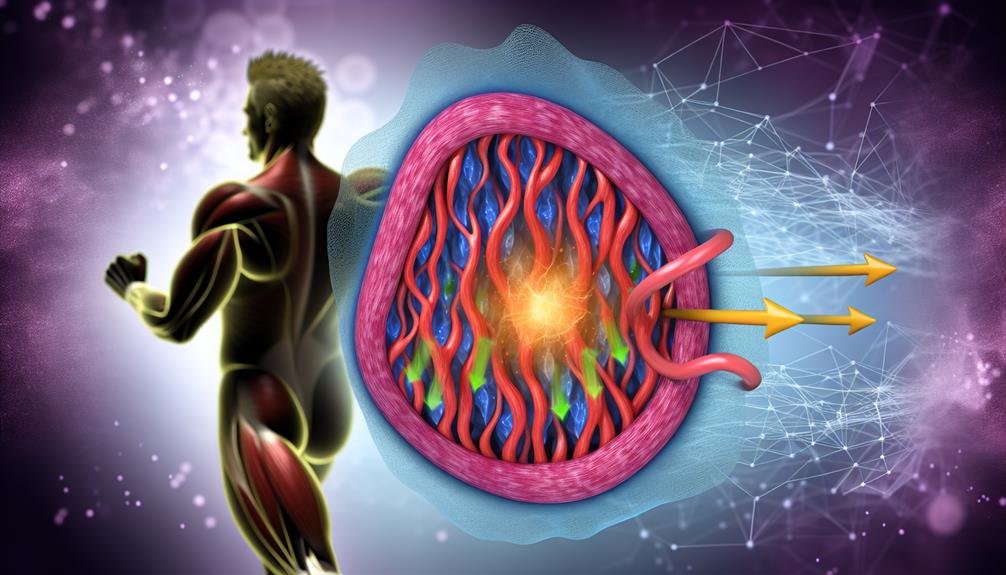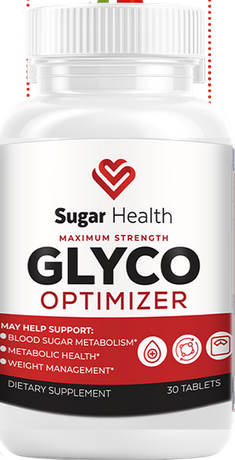I find it fascinating how sugar and glycogen are interlinked in maintaining our health. Glycogen is our body’s stored form of glucose, essential for energy, especially during exercise. When I consume carbohydrates, they break down into sugar, which can be converted to glycogen and stored in the liver and muscles. Proper glycogen levels are important for preventing fatigue and supporting overall physical performance. However, I always remember that an excess of sugar can lead to health issues. If you’re curious about how to balance sugar intake with glycogen storage for better energy management, there’s so much more to explore with SugarHealth Glyco Support.
Key Takeaways
- Glycogen, stored in the liver and muscles, is a crucial energy source during exercise and helps prevent fatigue.
- Sugar serves as a primary energy source; balanced intake is essential to avoid health risks like obesity and insulin resistance.
- Consuming complex carbohydrates post-exercise aids in glycogen replenishment and muscle recovery, enhancing athletic performance.
- Understanding the glycemic index can help manage blood sugar levels, positively impacting overall health and energy stability.
- Regular exercise and a diet rich in whole foods support insulin sensitivity and optimal glycogen storage for better energy management.
Understanding Glycogen Function

Understanding glycogen function is vital for anyone interested in optimizing their health and managing blood sugar levels. Glycogen serves as the body’s stored form of glucose, and it plays a pivotal role in glycogen metabolism. When we consume carbohydrates, our bodies convert them into glucose, which can be used immediately for energy or stored as glycogen in the liver and muscles for later use. This process is essential for maintaining energy balance, especially during periods of fasting or intense physical activity.
The liver’s function in sugar regulation cannot be overstated. It releases glucose into the bloodstream when needed, helping to stabilize blood sugar levels between meals. If glycogen stores are depleted, such as during prolonged exercise or fasting, the liver will convert non-carbohydrate sources into glucose, ensuring a steady supply of energy. This intricate system has significant health implications.
Impaired glycogen metabolism can lead to issues such as hypoglycemia or even chronic conditions like Type 2 diabetes, where the body struggles to manage glucose effectively. In addition, understanding how to optimize glycogen stores through diet and exercise can enhance athletic performance and overall well-being.
The Role of SugarHealth Glyco Support in Health
Sugar plays an essential role in our health, acting as a primary energy source for our bodies. It’s imperative to understand how our bodies metabolize sugar, as it influences everything from our energy levels to our moods. When we consume sugar, our bodies break it down into glucose, which is then absorbed into the bloodstream. This process fuels our cells, but it can also lead to sugar cravings and, in some cases, sugar addiction if we aren’t mindful.
Here are a few key points to reflect upon regarding sugar in our diet:
- Sugar Metabolism: Proper sugar metabolism is fundamental for maintaining energy levels and overall health.
- Sugar Absorption: How efficiently our bodies absorb sugar affects our blood sugar levels and can impact our risk for conditions like diabetes.
- Sugar Substitutes: Exploring sugar substitutes can help manage cravings while reducing the risk of negative health effects associated with excessive sugar intake.
It’s essential to recognize that while sugar is a significant energy source, excessive consumption can lead to health issues such as obesity and insulin resistance. Understanding the balance is key. By being aware of our sugar intake and evaluating healthier alternatives, we can enjoy the benefits of sugar without falling into the traps of addiction or unhealthy cravings. So, the next time you reach for a sugary snack, think about how it fits into your health journey!
Glycogen Storage and Energy

When we consume carbohydrates, our body converts excess glucose into glycogen, which serves as an essential energy reserve. This process, known as glycogen metabolism, occurs primarily in the liver and muscles. Once stored, glycogen can be rapidly broken down into glucose when the body needs energy, especially during physical activities. Understanding this process is important for enhancing athletic performance and optimizing muscle recovery.
Many athletes use carbohydrate loading before competitions to maximize their glycogen stores. By increasing carbohydrate intake in the days leading up to an event, they can elevate their energy reserves, potentially improving endurance and stamina. This strategy helps guarantee that they have enough glycogen available during intense exercise, allowing for sustained performance.
Moreover, glycogen plays a key role in muscle recovery post-exercise. After strenuous workouts, replenishing glycogen stores helps reduce fatigue and aids in repairing muscle tissue. Consuming carbohydrates immediately after exercise can accelerate this recovery process, making it easier to bounce back for the next training session.
It’s fascinating how our bodies efficiently manage these energy reserves. When glycogen stores are full, our performance can greatly improve, leading to better results in athletic endeavors. So, whether you’re an athlete or just someone who enjoys staying active, keeping an eye on your carbohydrate intake can be essential for maintaining those important glycogen levels and making sure your body operates at its best.
Impact of Blood Sugar Levels
Blood sugar levels play an essential role in overall health, impacting everything from energy levels to weight management. I’ve come to realize just how vital it is to maintain proper blood sugar regulation. When my blood sugar spikes or dips, it affects my mood, energy, and even my cravings. Understanding how to enhance insulin sensitivity and improve glucose metabolism has been a game changer for me.
Here are a few key points I’ve learned about managing blood sugar effectively:
- Dietary Sugar Sources: Not all sugars are created equal. Being mindful of my sugar sources, like preferring whole fruits over processed sweets, has made a significant difference.
- Glycemic Index Awareness: I’ve started paying attention to the glycemic index of foods. Choosing low-GI foods helps in maintaining stable blood sugar levels throughout the day.
- Insulin Sensitivity Enhancement: Regular exercise and a balanced diet have helped me enhance my insulin sensitivity, making it easier for my body to handle sugar efficiently.
Benefits of Maintaining Glycogen

Maintaining glycogen levels is just as important as managing blood sugar for overall health and performance. When I think about my physical activities, I know that glycogen serves as a primary energy source, especially during exercise. If my glycogen stores are low, I experience fatigue and decreased performance—definitely not ideal for my workouts.
There are effective glycogen replenishment strategies I rely on, such as consuming carbohydrates post-exercise. This supports glycogen synthesis mechanisms, ensuring my muscles recover effectively. Foods rich in carbohydrates, like whole grains, fruits, and starchy vegetables, are excellent dietary sources of glycogen that I include in my meals.
The effects of glycogen depletion can be quite serious. Without adequate glycogen, my body struggles to maintain energy levels, leading to decreased endurance and increased risk of injury. This is especially true during prolonged exercise sessions, where glycogen depletion can greatly impact my performance and recovery.
Moreover, understanding the relationship between glycogen and exercise is essential. The more intense the workout, the more glycogen my body uses. Consequently, maintaining ideal glycogen levels prepares me not just for workouts, but also for daily activities. By prioritizing my glycogen levels, I support my overall health, energy, and fitness goals. Fundamentally, paying attention to glycogen is not just a matter of athletic performance—it’s critical for my well-being and health.
Natural Ingredients for Blood Health
Natural ingredients play an essential role in supporting blood health, and I’ve found that incorporating them into my diet can lead to significant improvements in my overall wellness. When it comes to blood circulation and maintaining metabolic health, several natural remedies and herbal supplements have stood out for me. They not only contribute to healthier blood levels but also enhance my overall liveliness.
Here are three natural ingredients I highly recommend:
- Cinnamon: Known for its ability to help regulate blood sugar levels, cinnamon can also improve insulin sensitivity, making it a powerful ally for managing metabolic health.
- Beetroot: Rich in nitrates, beetroot promotes blood circulation by relaxing blood vessels, which can lower blood pressure and enhance overall cardiovascular health.
- Turmeric: This golden spice contains curcumin, which has anti-inflammatory properties that may help improve blood circulation and reduce the risk of heart disease.
Managing Insulin Resistance

Insulin resistance affects millions of people worldwide, and understanding how to manage it is essential for maintaining overall health. I’ve realized that improving insulin sensitivity and glucose metabolism can greatly impact my well-being. Effective management involves a combination of dietary adjustments, exercise impact, and maintaining hormone balance.
To help visualize these strategies, I’ve created a table summarizing key approaches:
| Strategy | Description | Benefits |
|---|---|---|
| Dietary Adjustments | Focus on whole foods, low glycemic index options | Helps stabilize blood sugar levels |
| Regular Exercise | Aim for 150 minutes of moderate activity weekly | Enhances insulin sensitivity |
| Stress Management | Practices like meditation and yoga | Supports hormone balance |
| Quality Sleep | Prioritize 7-9 hours of rest each night | Aids in glucose metabolism |
Incorporating these strategies has led to noticeable improvements in my energy levels and overall health. For instance, I’ve switched to a diet rich in vegetables, lean proteins, and healthy fats, which helps control blood sugar spikes. Regular exercise not only helps me manage weight but also boosts my mood, making it easier to stay active.
Additionally, I’ve found that managing stress through mindfulness techniques not only balances my hormones but also improves my insulin response. By taking these steps, I feel more in control of my health and well-being, and I encourage you to explore these methods for managing insulin resistance effectively.
Lifestyle Tips for Optimal Glycogen
Managing blood sugar levels and improving insulin sensitivity is closely linked to enhancing glycogen storage in the body. To guarantee my glycogen metabolism runs smoothly, I’ve adopted a few lifestyle tips that have really made a difference. One of the most essential aspects is balancing my dietary carbohydrates. I focus on consuming complex carbs like whole grains and legumes, which provide a steady release of energy and support efficient glycogen replenishment.
Incorporating regular exercise is another game changer. The exercise benefits are twofold: it not only helps deplete glycogen stores during activity but also enhances the body’s ability to store glycogen afterward. Here are three tips I follow to maintain ideal glycogen levels:
- Prioritize Post-Workout Nutrition: I make it a point to consume a mix of carbs and protein after workouts to promote effective glycogen replenishment.
- Stay Hydrated: Proper hydration supports overall energy balance, which is essential for ideal glycogen metabolism.
- Monitor Energy Intake: Keeping an eye on my daily caloric intake helps guarantee that I’m not in a deficit, which can limit glycogen storage.
Frequently Asked Questions
How Does SugarHealth Glyco Support Differ From Other Supplements?
When I compare SugarHealth Glyco Support to other supplements, its unique blend stands out. It provides natural energy while effectively regulating blood sugar levels. This formula not only enhances muscle recovery but also supports metabolic function, ensuring a thorough dietary balance. I appreciate that it’s made from all-natural ingredients, which aligns with my health goals. It’s invigorating to find a product that addresses multiple aspects of wellness without compromising quality or effectiveness.
Are There Any Side Effects Associated With SugarHealth Glyco Support?
I’ve looked into the potential side effects of SugarHealth Glyco Support, and user testimonials generally report minimal issues when following dosage recommendations. It seems to support sugar metabolism effectively without significant adverse reactions. However, some may experience mild digestive discomfort, especially with long-term use. It’s essential to consult a healthcare professional before starting, especially if you have pre-existing conditions. Always listen to your body and adjust as necessary for your health.
Can I Take SugarHealth Glyco Support With Other Medications?
I understand you’re curious about taking SugarHealth Glyco Support alongside other medications. Think of it like a dance; timing and coordination are key. Sugar interactions can affect how medications work, so it’s essential to discuss your dietary considerations and any health conditions with your doctor. They’ll help you navigate the steps and guarantee safety. Consultation’s important to avoid any unexpected missteps and keep your health on the right track.
How Long Does It Take to See Results From SugarHealth Glyco Support?
When considering how long it takes to see results from SugarHealth Glyco Support, I’ve found that individual responses can vary markedly. Typically, a results timeline of a few weeks is common, but lifestyle factors like diet and exercise play a vital role. Following dosage recommendations is essential, too. For long-term effects, consistent use alongside healthy habits can lead to more noticeable benefits over time. Patience and commitment are key to seeing real changes!
Is SugarHealth Glyco Support Suitable for Vegetarians or Vegans?
When considering SugarHealth Glyco Support, it’s like unearthing a treasure trove of nutritional benefits. I’ve found that it contains vegetarian ingredients, and there’s vegan certification, ensuring it aligns with my dietary restrictions. The careful ingredient sourcing reflects a commitment to quality, which gives me peace of mind. If you’re exploring options that cater to vegetarian or vegan lifestyles, this product seems to be a fitting choice for maintaining health.

